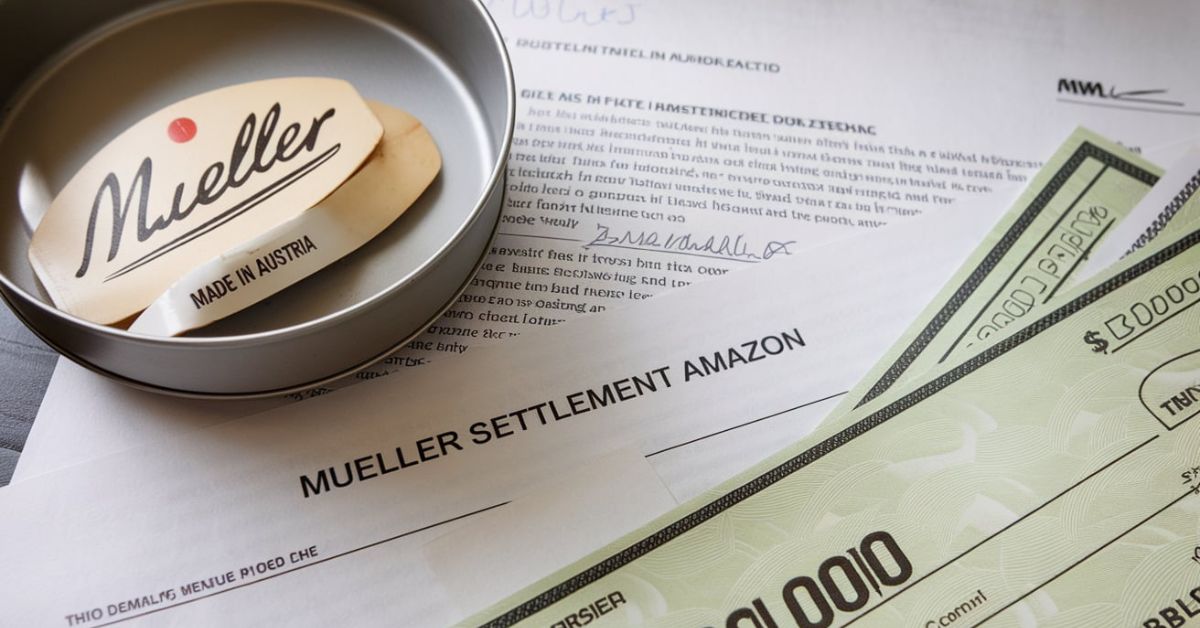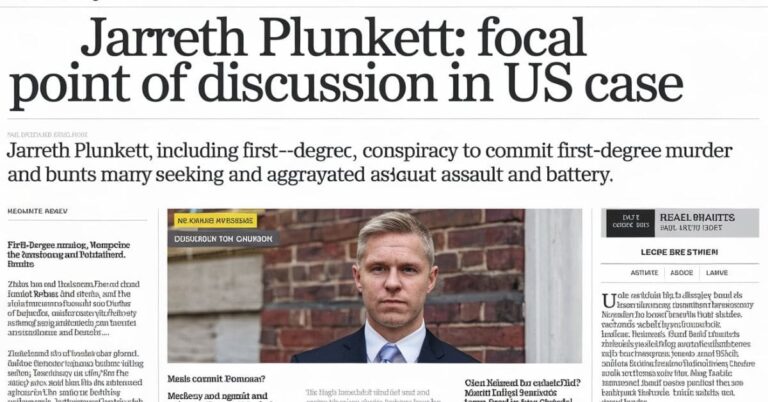Mueller Settlement Amazon: Understanding the Class Action and What It Means for Consumers
The “Mueller Settlement Amazon” case represents a significant legal agreement involving Aterian, Inc., the company behind the Mueller brand. At the heart of the settlement is a claim that Mueller’s popular kitchen products were falsely advertised as being made in Austria when, in fact, there was no substantial proof to support this. The agreement, settled for $800,000, comes as part of a class action lawsuit that aimed to address consumer grievances around misleading product origins and potential impact on purchasing decisions. This article will take an in-depth look at the case, providing not only detailed information about the settlement but also exploring its potential implications for consumers and companies on platforms like Amazon.
Background on Mueller and Aterian Inc.
Mueller, known for its wide range of kitchen appliances and utensils, has garnered a substantial consumer base on Amazon due to its affordability and perceived quality. Marketed as a European brand, Mueller products often highlight their Austrian origins as a key selling point, creating an image of reliability and quality that aligns with certain European manufacturing standards. Aterian, Inc., which manages the Mueller brand, is known for distributing consumer products across various categories, including health, beauty, and household goods.
The recent lawsuit challenges the notion of authenticity tied to these products’ origins, claiming that the marketing tactics were deceptive, leading consumers to believe they were purchasing Austrian-made items when, in reality, the origin was unclear or misrepresented.
The Mueller Settlement Amazon Case: Key Points
The settlement reached between Aterian and consumers involved a total of $800,000, which was agreed upon to resolve the claims made in the class action lawsuit. Here are some of the central issues covered in the case:
- False Advertising Allegations: The lawsuit alleged that Mueller kitchen products were falsely advertised as being “Made in Austria,” a claim not substantiated by any verifiable documentation or sourcing information.
- Consumer Deception: Many consumers reported they felt misled by the advertising claims, believing that Austrian manufacturing lent the products a higher level of quality and craftsmanship. The lawsuit argued that this belief was a result of deceptive marketing, affecting consumer trust and decision-making.
- Settlement Agreement: The $800,000 settlement is set to compensate affected consumers who purchased the misleadingly marketed products. The settlement serves as a reminder to companies about the importance of transparency in product labeling and advertising, especially when origin claims are made.
Why the Mueller Settlement Amazon Case Matters
The outcome of this case has far-reaching implications for consumers, businesses, and e-commerce platforms like Amazon. As consumers increasingly rely on product descriptions and reviews to make purchasing decisions, accurate and truthful marketing is essential. Misleading claims about product origin or manufacturing can erode trust, which is vital in today’s competitive online shopping landscape.
For consumers, the settlement emphasizes the importance of accountability. Customers want to feel confident in the authenticity of what they’re buying, especially when it comes to product origin. This case underlines the necessity of brand transparency to build consumer trust.
For companies, the case is a reminder that deceptive marketing practices can lead to serious legal consequences, damaging brand reputation and resulting in financial losses. E-commerce platforms like Amazon may also feel the ripple effect, as they aim to maintain their standing as trustworthy marketplaces by ensuring the credibility of the products sold through their channels.
How the Settlement Will Impact Amazon’s Marketplace Policies
Amazon, as a marketplace, has a vested interest in ensuring that products sold on its platform are accurately represented. The Mueller Settlement Amazon case draws attention to the need for better oversight of product descriptions and seller claims regarding product origin and authenticity. While Amazon already enforces guidelines to prevent false advertising, this case highlights areas for improvement.
Amazon’s policies may evolve to implement stricter verification processes for origin claims, especially for brands selling under foreign labels. Such changes would not only protect consumers from misleading information but also strengthen the trustworthiness of Amazon as a leading e-commerce platform.
Steps Consumers Can Take to Verify Product Authenticity
For consumers, the Mueller Settlement Amazon case reinforces the need to take proactive steps to ensure they’re buying authentic, accurately marketed products. Here are some useful tips:
- Read Reviews Carefully: Look for reviews that mention product origin or address discrepancies between product description and actual product.
- Research the Brand: Conduct a quick online search about the brand to check if there are any ongoing concerns or past lawsuits involving false advertising.
- Look for Certifications: Some products may include certifications verifying their origin, quality, or manufacturing standards. Look for recognizable marks or quality certifications as reassurance.
- Compare Listings: Check other listings on Amazon or even other retailers to see if the origin claim is consistent.
The Importance of Transparent Marketing in E-Commerce
The “Mueller Settlement Amazon” case underscores how critical transparent marketing practices are in the age of e-commerce. With consumers now able to shop from a vast array of international brands, honesty about product origin and quality is crucial. Misleading marketing not only risks lawsuits but also damages consumer confidence, which is difficult to rebuild once lost. This case is a significant reminder that companies need to prioritize authenticity, especially when selling in global marketplaces like Amazon.
Legal Ramifications for Companies Engaging in False Advertising
The financial repercussions for Aterian, Inc., totaling $800,000, send a strong message to other companies about the costs of false advertising. Legal ramifications for deceptive marketing can extend beyond financial penalties; they can also impact brand reputation and customer loyalty. For example:
- Class Action Lawsuits: False advertising can lead to class action lawsuits, which often result in costly settlements and extended legal battles.
- Regulatory Scrutiny: Cases like this can attract the attention of regulatory bodies such as the Federal Trade Commission (FTC), which has the authority to impose additional fines and enforce corrective measures.
- Loss of Consumer Trust: Perhaps the most detrimental impact of false advertising is the loss of trust, which can significantly decrease a brand’s market value over time.
The Future of Product Authenticity on Amazon and Other E-commerce Platforms
The Mueller Settlement Amazon case is part of a broader movement pushing for greater authenticity and transparency in e-commerce. Here’s what we might see in the future:
- Enhanced Verification Processes: Platforms like Amazon may enhance product listing verification, especially for origin claims.
- Stricter Regulations: Regulatory bodies may implement stricter guidelines on product origin labeling, ensuring that claims are backed by concrete evidence.
- Increased Consumer Awareness: Consumers are becoming more vigilant about product authenticity, which will likely encourage companies to be more transparent.
- Changes in Advertising Practices: Brands may adopt more cautious advertising practices, ensuring that any origin claims are fully verifiable.
FAQs About the Mueller Settlement Amazon Case
1. What is the Mueller Settlement Amazon case about?
The case involves a class action lawsuit claiming that Mueller kitchen products were falsely advertised as being made in Austria. Aterian, Inc. agreed to a settlement of $800,000 to resolve these claims.
2. Why did consumers feel misled by Mueller’s advertising?
Consumers reported that the “Made in Austria” label gave them the impression of high-quality European craftsmanship. However, the lawsuit claimed there was no proof that these products were actually made in Austria, leading consumers to feel misled.
3. Who can benefit from the settlement?
Consumers who purchased Mueller kitchen products based on misleading origin claims may be eligible to receive compensation as part of the $800,000 settlement.
4. What does this mean for product authenticity on Amazon?
The case may lead to stricter policies on Amazon regarding product origin claims. Amazon may also increase oversight to ensure that sellers accurately represent product origins.
5. How can I protect myself from false advertising?
To avoid misleading claims, check reviews, research brands, and verify certifications when possible. Comparing listings across platforms can also help confirm authenticity.
6. Will Aterian change its marketing practices as a result of this settlement?
The settlement and associated legal costs may encourage Aterian and similar companies to ensure greater transparency in their marketing and labeling practices to avoid future lawsuits.
7. How does the settlement affect Amazon’s reputation?
While Amazon was not directly implicated, the case emphasizes the importance of accurate product descriptions on its platform. This could lead to improved trust measures for consumers on Amazon.
Conclusion
The Mueller Settlement Amazon case highlights the importance of truth in advertising, especially regarding product origins. As consumers continue to shop on Amazon and other e-commerce platforms, the demand for transparent, authentic marketing will only grow. This case serves as a precedent for companies that make origin claims to ensure these are substantiated.
For consumers, the case is a reminder of the value of informed purchasing decisions, and for companies, it illustrates the financial and reputational costs associated with misleading marketing. Moving forward, this settlement may lead to positive changes in e-commerce, emphasizing accountability, consumer protection, and trust in the products we buy.






